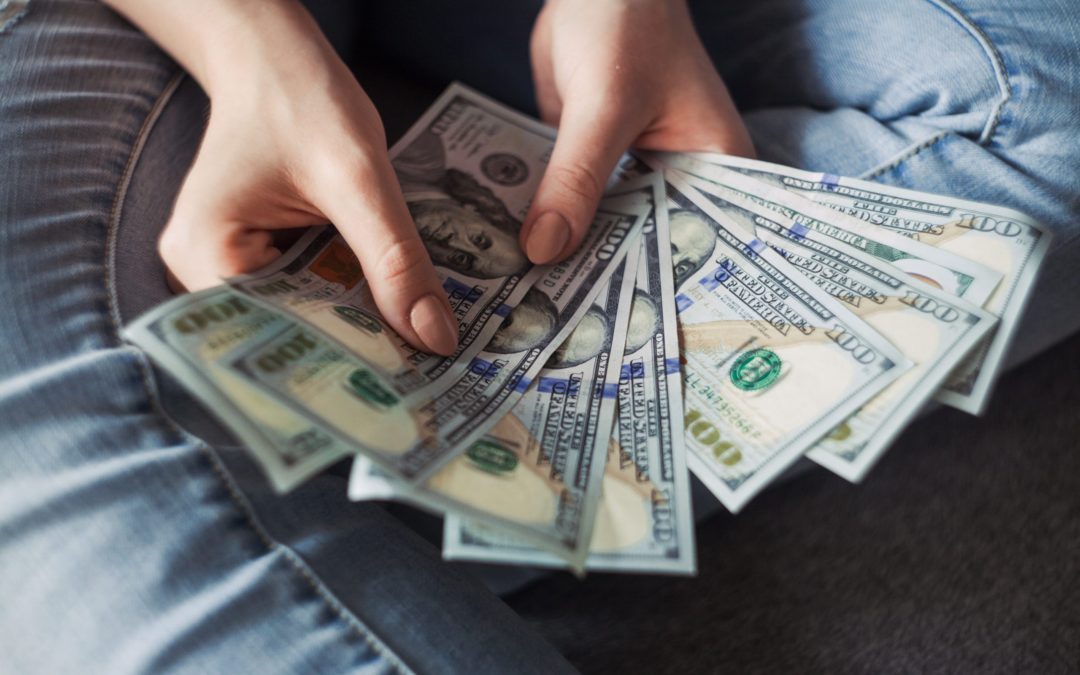Get ready to buy a condo for foreigners
Thailand, the Heaven of Asia, always opens its doors to tourists from all over the world due to its easy living conditions and the eatery trend. The cost of living is very cheap, and there are many tourist attractions that are both beautiful and fun. This complete lifestyle makes everyone want to settle down in Thailand.
Yes, Thai real estate is limited to Thai citizens only. But we are also open to foreigners buying and owning condominiums, except for houses and land, which are still reserved for Thai people only.

Now, let's learn and see how to easily prepare to buy a condo for foreigners. Property 101 Thailand has the answer for you!

1. Check the foreign ownership ratio (foreigner quota).
Once you’ve found a suitable project, ask the salesperson whether or not the project’s foreigner quota has already reached 49%.
According to the Condominium Act, Amendment No. 4, B.E. 2551, foreign individuals or juristic persons can purchase and hold ownership of a condominium unit or condominium in Thailand by themselves. With the highest foreign ownership ratio permitted, foreigners own 49% of the total sales area of that project, while Thais or a Thai juristic person hold the remaining 51%.
2. Qualifications of foreign buyers and required documents
If the foreign buyer is an individual who must be allowed to have residence in the Kingdom of Thailand under the law on “immigrants,” the required documents are a passport or a residence certificate. This group is considered a large one and enters the city normally.
or enter the Kingdom of Thailand under the law on “Investment Promotion.” The documents required are a passport and a letter from the Office of the Board of Investment certifying that an alien is allowed to stay in Thailand under the law on investment promotion.
A copy of the passport documents must be clearly presented, showing the identity page and a picture of the face.
If the buyer is a foreign juristic person or a foreign registration company, the documents required are more than a passport. In other words, company documents must also be used, such as company certificates, etc.
Let’s check the qualifications of what type of buyer you are. and prepare documents to meet the conditions of the government.
3. Visa of foreign buyers
Another document for foreigners buying condos is the immigration last entry stamp page into Thailand, or “VISA” as supporting evidence on the date of ownership transfer must be submitted to the Land Office.
As a general rule, the VISA entered into Thailand will control the length of time that a foreigner is allowed to stay in Thailand for a specific period of time, and for any country that receives a free visa, there will be the usual immigration stamp to show the Land Officer.
The Land Office calls for a VISA or Immigration Stamp page in the passport book for buying and selling condominiums with the following objectives:
– To confirm the identity of that foreigner and check their lawful entry into the country.
– To verify the facts of the document because every official document that is signed, such as a power of attorney or spouse consent letter, must be dated within the time period specified by the VISA or Immigration Stamp and the signer must reside in Thailand when signing the document.
For example, in the case of a free visa, if a foreign buyer can get a period from 1–15 January but depart from Thailand on 5 January, the date that can be specified in official documents can only be 1–5 January.
If, after this deadline, it is considered that the sale of the condominium has an unclear source or the information is false, the officer will not consider the transfer of ownership.
4. T/T payment
Foreign buyers must pay for the entire unit by transferring currency from their foreign bank account. Regardless of whether the buyer works in Thailand, has a work permit, or has a Thai bank account,
The important thing is that the money transfer must be in other currencies such as Dollars, Yuan, Yen, etc. but not in the Thai currency “Baht” (Bahtnet). T/T or Swift Code is the form of foreign currency transfer into an account in Thailand. The currency is exchanged into “baht” by Thai banks such as Krung Thai Bank, Bangkok Bank, etc.
Foreign buyers are required to transfer money from their bank via a system known as “Telegraphic Transfer (T/T)” or “Swift CodeW"
Therefore, in this case, the issue of daily volatility occurs regularly. Foreign buyers have to calculate and transfer money a little more for bank fees and the daily appreciation or depreciation that occurs.
Foreign buyers should transfer money from their own accounts. Then Transfer funds to the bank account of the developer (project company) or the buyer’s deposit account opened with a bank in Thailand (if any).
The Bank of Thailand does not limit the maximum and minimum amounts in any way. Therefore, it can be gradually transferred many times. Or transfer a large sum of money at once.
In this matter, we need to have a good financial plan. It not only delays the transfer but also affects the sale and purchase agreements.
5. Purpose of money transfer
In addition to foreign buyers needing to transfer money equivalent to the price of the condo and pay in other currencies, they must also specify the purpose of buying the condo in the original transfer document, the Telegraphic Transfer Form (T/T Form), correctly and clearly. too
That is, it must indicate the purchase of the condominium, the project name, the name of the unit, and the name of the foreign buyer, for example, “For Purchase Condominium Thai Sea Breeze unit 1502 under Mr. Peter Kingston”.
If not specified or misidentified, It will affect the foreign money transfer certificate in the next step.
6. Money transfer certificate
When foreign buyers transfer money from oversea banks to the recipient’s Thai bank, they must notify the Thai bank to issue a money transfer certificate to show at the land office on the day of ownership transfer.
After passing through the bank inspection process and exchanging foreign currency into Thai baht, foreign buyers will receive a Credit Advice document from the beneficiary bank as proof of each money transfer.
In the event that the developer has already received the money transferred directly from the buyer, the developer must ask for your “Credit Advice” for receiving the “Certificate of Foreign Fund Transfer” from the Thai bank again. They will bring this certificate to show it at the land office.
If the buyer transfers money to the buyer’s Thai bank account, foreign buyers must request a “Certificate of Foreign Fund Transfer” by themselves, as the owner. The developer cannot make such a request.
It is important that the purpose of the transfer and currency exchange be completely correct. The total value of the transfer must be equal to or greater than the selling price of the condominium.

7. Government documents and Notary Public
In principle, foreign buyers must enter Thailand to complete the documentation process. During your stay in Thailand, only the Land Office will request reference documents, such as copies of passports and VISA or immigration stamps, to support the ownership transfer.
That is, the power of attorney and any certificate must be done while the buyer is residing in Thailand only. by referring to the visa stamp or immigration stamp in the passport.
in the opposite situation If foreign buyers are unable to travel to Thailand, the buyer must sign and certify the document at the consulate or notary public at the Thai embassy in that country.
Notary public is when the officer signs and seals to certify that such documents (in this case, a power of attorney to buy condominium units) are correct, legal, and that the buyer has signed the document in front of the officer correctly in the area of Thailand.
All supporting documents, such as passports, powers of attorney, letters of consent, etc. All items must be provided by the buyer.
The buyer must then submit the certified original documents to the developer. To hold such documents and process the transfer of ownership at the land office as usual.

8. Thai language
Any supporting documents, such as a copy of a marriage certificate or company certificate that was registered in another country and that must be used for buying and selling condominiums, must be translated into Thai and certified by authorized translation centers only.
Many of you may give up because it seems like a complicated process. But in fact, if you understand the various methods and clearly communicate, it is not difficult for foreigners to buy a condo in Thailand.
Property 101 Thailand suggests that getting a good real estate consultant It helps make our lives a lot easier.



